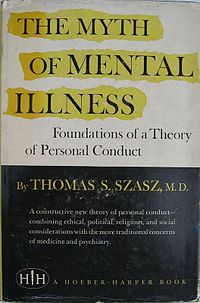Scientists have been debating the efficacy of antidepressants for decades. The latest paper to throw its hat into the ring concludes that there is little evidence to show that they perform better than placebos.
In 2017, around 17.3 million adults in the United States experienced an episode of major depression.
Alongside talking therapies such as psychotherapy, many people with depression take antidepressants.
According to the Centers for Disease Control and Prevention (CDC), a 2011–2014 survey found that 12.7% of U.S. individuals aged 12 or above had taken antidepressant medication in the previous month.
That equates to almost 1 in 8 people.
Of these individuals, one-quarter had been taking antidepressants for at least 10 years.
Although many people use these drugs, there is still a great deal of controversy surrounding how well they work — and studies have generated conflicting results.
Why the doubt?
To a greater or lesser degree, all the factors below and more have combined to produce a situation where scientists are still not clear whether antidepressants work better than a placebo:
Pharmaceutical companies are keen to market the drugs they have spent years designing and testing.
Doctors want to provide medication to those with a reduced quality of life.
Patients are keen to try anything that might improve their well-being.
Journals are more likely to publish studies with positive findings.
The latest analysis to form part of this ongoing battle comes from scientists at the Nordic Cochrane Centre in Denmark. This time, the authors conclude that the current level of evidence in support of antidepressants is not sufficient to prove that they work better than placebo.
The review, which now appears in BMJ Open, is a response to a paper by Dr. Andrea Cipriani and team that The Lancet published in February 2018. In the paper, Dr. Cipriani and team compared the performance of 21 antidepressants.
They set out to "compare and rank antidepressants for the acute treatment of adults with unipolar major depressive disorder," as a guide for doctors.
Their analysis was the largest of its kind; it included 522 trials and 116,477 participants. The researchers concluded that, among other things, "[a]ll antidepressants were more efficacious than placebo in adults with major depressive disorder."
For many, these findings were definitive proof that antidepressants work.
However, "[t]he review received widespread media coverage, largely citing it as finally putting to rest any doubts regarding the efficacy of antidepressants," explain the authors of the latest BMJ Open paper.
Reopening the data
Led by Dr. Klaus Monkholm, the authors of the new publication believe that the earlier work by Dr. Cipriani did not address certain biases in the data. Dr. Monkholm and others initially penned a critique in The Lancet in September 2018.
In it, the authors outline a number of issues. For instance, in an ideal study, participants are "blinded." This means that they do not know whether they are receiving the drug or the placebo.
However, because antidepressants have well-known side effects, it is very difficult to conduct studies wherein participants are adequately blinded; in other words, participants are likely to know that they are in the experimental group rather than the placebo group.
Dr. Monkholm and his team believe that Dr. Cipriani did not adequately account for this.
Because so many people use antidepressants, the scientists decided to go beyond the critique. They set out to repeat Dr. Cipriani's analysis, but this time, they would account for the biases they believe the team missed the first time.
The authors explain that they "aimed to provide a more comprehensive assessment."
New look at a recent analysis of an old query
Dr. Monkholm and his team unearthed a range of concerns in the original Lancet analysis. Below, we have outlined just a few.
Firstly, in the original paper, Dr. Cipriani and his team reported that they followed the protocol set out in the Cochrane Handbook for Systematic Reviews of Interventions — the gold standard approach to these types of analysis.
However, Dr. Monkholm points out occasions where their work deviated from these guidelines.
The new BMJ Open paper also explains how Dr. Cipriani's work did not adequately address publication bias. The authors write:
"Publication bias of antidepressant trials is pervasive and distorts the evidence base. Many industry funded antidepressant trials remain unpublished or are inadequately reported."
They continue, "Cipriani et al. included 436 published and 86 unpublished studies, but as many as a thousand antidepressant studies may have been conducted."
The debate will go on
Overall, Dr. Monkholm argues that the studies involved in the meta-analysis had short durations and were therefore not necessarily applicable to people who take antidepressants for years.
Also, effect sizes were relatively small, and although statistically significant, they may not be clinically significant.
The authors also note that in the groups that took antidepressants, there were relatively high drop out rates in many of the studies. According to the authors, this suggests "that the benefits of antidepressants may not outweigh the harms."
Alongside flaws in the analysis, the authors also claim that "their results were nontransparently presented." This meant that it was not possible to work out how some of the analyses were conducted.
"Taken together, the evidence does not support definitive conclusions regarding the efficacy of antidepressants for depression in adults, including whether they are more efficacious than placebo for depression."
Although the authors do not claim that antidepressants do not work, they conclude that the evidence is still not strong enough. They call for larger, longer, more rigorous studies. A question as crucial as this is likely to receive ongoing attention.
A new paper asks whether there is sufficient evidence to prove that antidepressants work better than a placebo. They conclude that there is not.

www.medicalnewstoday.com
do i get this right? people risking permanent side effects because of a drug which efficiency beyond placebo effect hasnt been proven yet?




